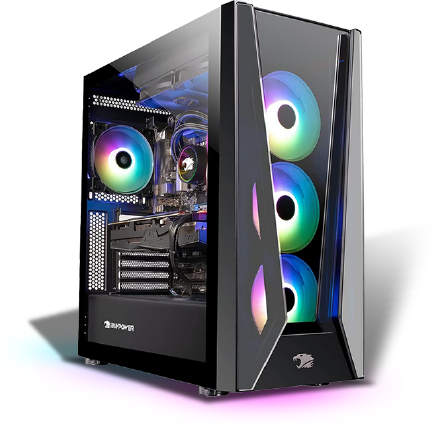Like the majority of other programs, Unity has a set of hardware requirements that must be fulfilled. However, you must be aware of which hardware supports Unity the best in order to get the best performance. This guide will cover the top processors, video cards, memory, and storage drives for Unity development. Get in touch with us so we can assist you in designing the ideal workstation for your needs.
CPU
Unity’s use of the CPU
Your Unity development workstation’s processor is a vital part because it has an impact on everything you do. A CPU with a high core count is advantageous for some demanding tasks like GI baking and lightmapping. We recommend a variety of CPUs, from low-cost models to those with many cores for demanding threaded tasks.
Best CPU for Unity
The AMD Ryzen 9 7900X 12 Core is a fantastic option for the majority of users. It performs well thanks to its 12 cores and 24 threads. The Ryzen 9 7950X 16 Core offers better performance if you have a larger budget. The AMD Thread ripper PRO 5000 WX-Series are suggested for tasks like light baking and compiling because of their superior performance.
GPU for Unity
How Unity Utilizes Video Cards (GPUs)
At the moment, Unity only uses the video card to show graphics on the screen. Your FPS will increase with a faster video card, but your productivity on other tasks won’t increase.
Best Video Card for Unity
Any top-tier GeForce video card will perform admirably with Unity. The NVIDIA GeForce RTX 4080 16GB for multiple displays and the NVIDIA GeForce RTX 4090 24GB for developing VR content are two of our top picks.
Unity RAM Requirements
The amount of RAM you need depends on your project and whether you do RAM-intensive tasks such as building lighting. As a general rule, we recommend:
32GB of RAM for most users
64GB+ of RAM for building lighting that takes more than a few hours
STORAGE
Drive Options for Unity
We offer three types of storage drives for your specific needs:
Solid-State Drive (SSD) for fast launches and program installations
PCI-E M.2 NVMe SSD for faster performance and project drives
Traditional Platter Hard Drive for affordable and larger capacity storage and backups
Best Drive Setup for Unity
A two to three drive configuration is recommended:
Primary Drive: OS/Software (SSD or NVMe SSD)
Secondary Drive: Project Files (SSD or NVMe SSD)
Backup Drive: Large-capacity Hard Drive
In conclusion, building the ideal workstation for Unity development requires considering factors such as the processor, video card, memory, and storage drives. We hope this guide helps you find the best hardware for your Unity development needs.
Check out our catalogue of optimised Unity builds here.
We build and ship Custom PCs across India with up to 3 years of Doorstep Warranty & Lifetime Technical Support. We have 3 stores in Hyderabad, Gurgaon & Bangalore. Feel free to visit them or get in touch with us through a call for consultation.


